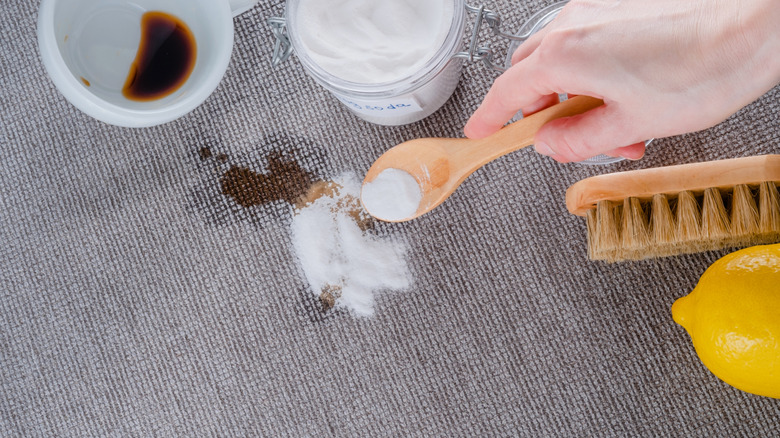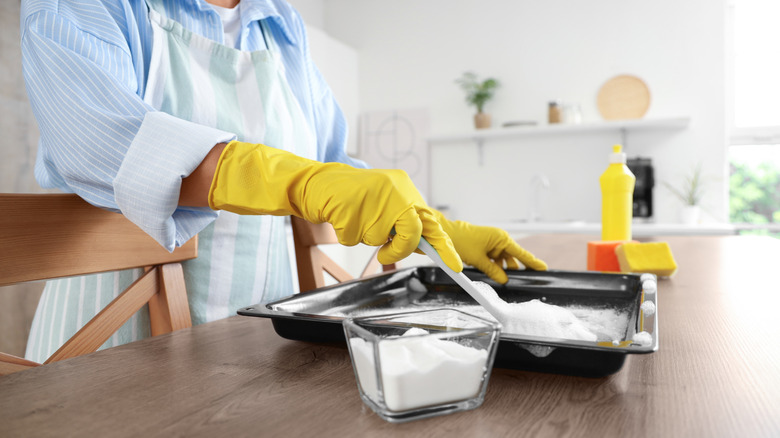Baking Soda Vs. Cornstarch: When To Use Each One For Cleaning
When it comes to cleaning your household, you don't always need to go to the grocery store. Some of the most effective solutions are already in your pantry, like baking soda and cornstarch, which are natural cleaning ingredients that you'll want to have a healthy stock of in your home. They are not only affordable but also surprisingly versatile and effective at removing messes that may otherwise be hard to address.
Baking soda works well as an abrasive and is a natural deodorizer. Meanwhile, if you need to remove stains and grease, consider the unconventional uses for cornstarch around the house. It is important to understand the difference between cornstarch and baking soda so you can depend less on toxic cleaners and know when each product is the most appropriate option. In doing so, you can make the most of these pantry staples and simplify your cleaning routine without spending too much.
Key differences between baking soda and cornstarch for cleaning
To understand when to use cornstarch vs baking soda for cleaning, turn to the type of mess you're dealing with. Baking soda — or sodium bicarbonate — is a mild alkaline compound that reacts with acids to neutralize odors. This reaction helps control the gross smells in your home, like those from spoiled food, pet accidents, or even sweat. Its fine and gritty texture also helps handle grime. Baking soda is best used when dealing with tough stains since its mild abrasiveness makes it great for scrubbing kitchen counters, bathroom tiles, and even cookware.
Cornstarch, on the other hand, is a carbohydrate. It acts as a highly absorbent powder, making it ideal for handling excess moisture and greasy stains or spills. Instead of breaking down stains chemically like baking soda, it lifts them by soaking them up. Sprinkle a little cornstarch to soak up the mess caused by greasy spills, letting it work its magic for around 15 minutes before vacuuming it up. Cornstarch is particularly useful for freshening up sensitive materials that might be damaged by scrubbing or harsh chemicals. It can also help polish glass and metal surfaces by absorbing smudges and fingerprints without the risk of scratching.
Using the wrong product in certain situations can be ineffective or even damaging. For instance, baking soda's abrasive texture makes it great for scrubbing off stains, but it could scratch delicate surfaces like glass where cornstarch would be the better choice. Cornstarch, meanwhile, absorbs grease well but lacks the deodorizing power of baking soda.

